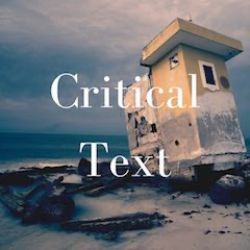Please click below to view any of the articles in our archive.
A detailed analysis of the impacts one embraces when uncritically accepting modern Bibles based on the critical text (CT), also known in scholarly circles and seminaries as the Nestle Aland - United Bible Societies text (NA-UBS, or NU for short).
(Link to 15-page PDF file; Sept. 2023)
(Link to 15-page PDF file; Sept. 2023)
The late Edward F. Hills (1912-1981) comprehensive work, "The King James Version Defended: A Christian View of the New Testament Manuscripts", presents a compelling argument for the KJV and old tradition. What makes the KJV worth defending is that it is the only translation of the ecclesiastical text (i.e., the textus receptus) other than Young's Literal 2nd edition and Greens. A scholarly yet readable introduction by the late Dr. David P. Letis is worth your time. Hills was a well trained classicist and internationally recognized New Testament text critic who analyzed the problems of modern language translations and Westscott-Hort text criticism methodology. This book is a must-have for any pastor's study.
(PDF - 225 pgs; 4th edition)
(PDF - 225 pgs; 4th edition)
The latest hot-selling Bible is the ESV. Before you burn your hard-earned cash, you might want to see what the next-generation RSV actually does to God's Word. You'll be shocked. You may even get kicked out of your church if you even question why 15% of the Received Greek New Testament is missing from this utterly corrupt translation. At best we can only say it contains the word of God.
(Study - 7 pages; 2017)
(Study - 7 pages; 2017)
There are three key lenses through which any Bible translator must work: selecting the underlying Hebrew and Greek text, selecting a translation approach, and identifying the key purpose for the translation. This study covers: What the Bible Says About Itself; What Reformed Confessions Say About The Bible; Reliability of the Texts; Types of Attacks; How We Got Our Bible; What We Have Today; and Main Issues You Should Focus On.
(Study - 11 pages; 2022 update)
(Study - 11 pages; 2022 update)
We just read what the publisher page says, and figure out who wrote the Bible ... right? Hardly! Some 40 different authors over a period of about 1,600 years contributed to this divine piece of work. How do we know this? What does the Bible say about itself?
(Video - 66 mins; plus Study - 3 pages; 2017)
(Video - 66 mins; plus Study - 3 pages; 2017)
It's fashionable for theologians to declare Bible passages to be in error, claiming that words and phrases can be harmlessly removed. They also boldly claim God didn't promise to preserve His Word, but just "propositional truth". Others claim this is a conscience issue. Does the Bible directly address any of this? [Hint: yes!]
(Study - 2 pages; 2015)
(Study - 2 pages; 2015)
When we say "the canon is closed", we mean there's no more divine revelation coming from God. This shuts down the door to errors such as Apostolic succession, prophets coming with new teachings, or a trust in scholars over the Word itself.
(Study - 2 pages; 2013)
(Study - 2 pages; 2013)








